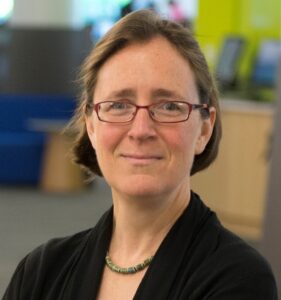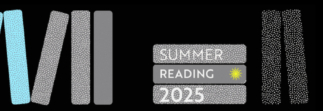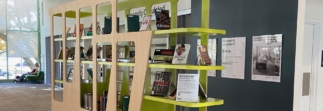
Bring your lunch and join us in E25-401 for this lunchtime discussion with Julia Flanders.
Twenty-five years ago, jobs in humanities computing were largely interstitial: located in fortuitous, anomalous corners and annexes where specific people with idiosyncratic skill profiles happened to find a niche. One couldn’t train for such jobs, let alone locate them in a market. The emergence of the field of “digital humanities” since that time may appear to be a disciplinary and methodological phenomenon, but it also has to do with labor: with establishing a new set of jobs for which people can be trained and hired, and which define the contours of the work we define as “scholarship.”
This talk will look at the evolving landscape of digital humanities professional identity, considering the ways jobs are defined, the kinds of roles and skills they entail, and the different ways they imagine the incumbent’s relationship with the domain of technology and “tools.” Julia will consider some factors that can lead to a strong working ecology and raise questions in conclusion about the kinds of training and education that may be most fruitful.
Julia Flanders is the Director of the Digital Scholarship Group in the Northeastern University Library, and a Professor of Practice in Northeastern’s English Department. She also directs the Women Writers Project and serves as the editor in chief of Digital Humanities Quarterly. She has served in the past as the Chair of the Text Encoding Initiative, and as President of the Association for Computers and the Humanities. Her research interests focus on text encoding, digital scholarly editing, and new modes of scholarly communication.
More details can be found on the Program for Information Science website.

